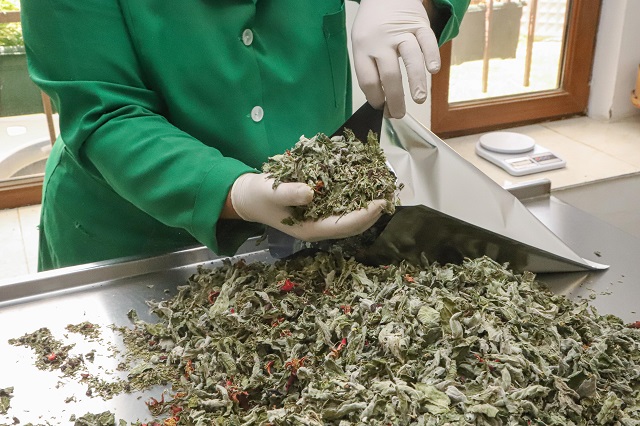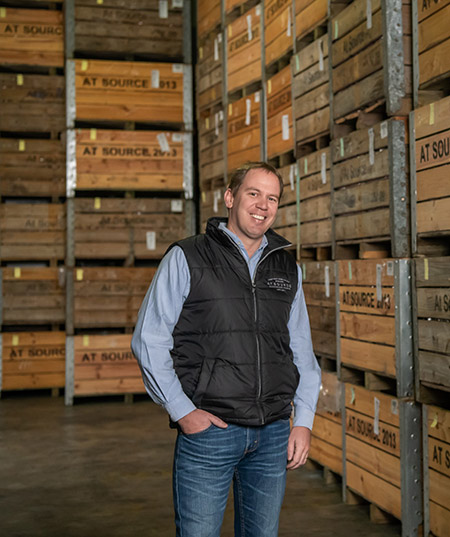The practice of producing herbs in the Armenian Highlands dates back to ancient times. The region was home to a number of valuable herbs which were exported to different parts of the ancient world. Back in the first century Roman author Pliny the Elder praised the toning and rejuvenating properties of the then famous herb Upan (Laserpitium) used in treating tuberculosis, fever, and liver cirrhosis, among other diseases. The healing power of Armenian herbs was also described in the works of Herodotus, Strabo, Xenophon and Tacitus.
Centuries later, Armenian herbs and herbal teas are exported to different countries worldwide including the EU member states where they have earned the appreciation of the Chancellor of Germany. Eastern Partnership: Ready to Trade – an EU4Business initiative helps local companies produce internationally competitive herbs and herbal teas and enter new markets. The project is implemented by the International Trade Centre (ITC) and funded by the European Union under its EU4Business Umbrella.
There is a saying, “The higher the mountain, the better the herb,” which is most likely the key to success of the local herbal teas, most of them produced from wild herbs. The quality of the local herbs and herbal teas are also praised by the experts of the project who have been providing continued consultations to Armenia-based companies helping them produce internationally compliant teas.
“Adhering to quality standards – all the way from cultivating and harvesting – is paramount. Sorting, removal of foreign matter, correct drying levels are key in producing a top-notch product as well as proper storage and warehousing to ensure the material is kept dry and away from light. Quality controls through the production site to reduce any risks – quality management systems such as HACCP are an excellent way for a business to review and manage this throughout the supply chain,” international tea expert Angela Pryce says.
Read also
For two years now Angela and Sanjo Guhu -international tea expert from India – have provided training and individual consultation to the local tea producers – from quality control to marketing and logistic solutions.
“What works for local customers is not always appealing to European consumers. For example, local consumers like herbal blends with a strong flavour while European customers prefer a more subtle taste. As Angela recommended, we are looking to expand our production to blend local herbs with black and green teas. We also intend to issue a new line of fruit tea blends to make our products more competitive internationally,” a project beneficiary, Director of Ritea Company Rita Martirosyan says, adding that the ingredients of medicinal herbal teas should be compliant with the EU database and indicated on the pack when exported to the EU.
The project has also provided Armenian companies consultations on ways to enter new markets and present their products on leading international platforms. Local companies have established business ties with international buyers at major trade shows such as BIOFACH trade fair for organic food, SIAL food processing and ANUGA international food and beverage fairs.
“The export potential for Armenian herbs is huge. The main challenge for businesses within the local market looking to export would be to ensure that their product is legally compliant to be sold as a health product within the retail market. Particularly if the product is being sold with a link to health, there are legal requirements in place to make sure that the brands do not mislead the customer or are not making a false claim,” notes Angela Pryce.
In 2019 Armenia’s State Revenue Committee reported 11,6 tons of tea in exports. According to the National Statistical Committee, the volume of tea exports from Armenia dropped to 1,5 tons in January-June, 2020 which is largely due to the COVID-19 crisis. As Angela Pryce notes, the sales of traditional black tea bags is declining as consumers switch to herb and fruit infusions. For instance, the UK market has reported volume growth of around 30% since 2013, which creates favourable conditions for businesses looking to export their herbal products to this or other international markets.
This publication was produced with the financial support of the European Union. Its contents are the sole responsibility of the International Trade Centre and do not necessarily reflect the views of the European Union.
European Union For Armenia
EU4Business
2 September, 2020



























































